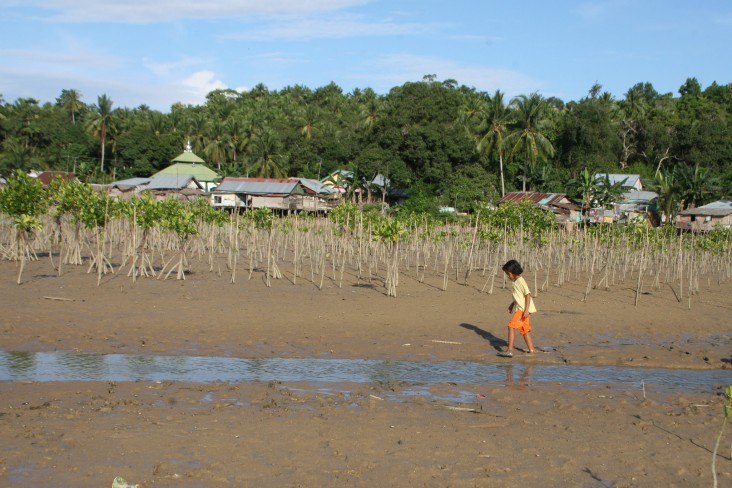
Indonesia is home to some of the world’s richest biodiversity, tropical forest, and marine ecosystems. Today, the island nation is experiencing grave environmental threats ranging from rapid deforestation and over-fishing to extreme weather events. The United States and Indonesia partner directly to address environmental challenges and climate security. This strong commitment is reflected in the U.S.-Indonesia Strategic Partnership agreed in 2015 by the two nations.
On behalf of the American people, the U.S. Agency for International Development (USAID) partners to end extreme poverty and combat global threats and increase climate security while advancing U.S. security and prosperity. USAID supports the Government of Indonesia (GOI)’s efforts to advance climate security and in building its resilience to extreme weather events and natural disasters.
- USAID supports the sustainable management of 13 million hectares of forest, which is roughly the size of Tennessee.
- 22MW of energy from 14 new USAID-supported clean energy small power stations serve more than 200,000 people.
- USAID helps Indonesia protect and manage 20m hectares of ocean and coastal resources - an area almost as big as South Dakota.
Conserving biodiversity and Natural Resources
USAID supports the development and implementation of environmental policies, laws, and regulations while implementing economic development strategies that encourage sustainable resources management.
Marine and Fisheries Sector: Indonesia’s marine biodiversity has increasingly come under threat from overfishing, destructive fishing practices, extreme weather events, pollution, and over-development. USAID supports the GOI in strengthening the technical and operational capacity of the Ministry of Marine Affairs and Fisheries, local authorities, the private sector, universities, communities, and others to improve sustainable fisheries management and marine biodiversity conservation. Together with the national and local governments and local communities, USAID has helped Indonesia establish 8 million hectares of Marine Protected Areas.
Terrestrial Sector: USAID builds capacity in national and local government bodies, and associated civil society actors, and enters partnerships, to strengthen and promote sustainable land-use management and practices in eight landscapes stretching across four provinces: Papua, Central Kalimantan, North Sumatra, and Aceh. USAID projects conserve large swaths of lowland and peat forest with high concentrations of biodiversity.
Strengthening Resilience and Environmental Safeguards
Indonesia made an international commitment to a 26 percent reduction in greenhouse gas emissions by 2020, with a further reduction of up to 41percent with international assistance. USAID supports the GOI’s efforts to meet its commitments to significantly reduce greenhouse gas emissions.
Greenhouse Gas Reduction: About 87 percent of Indonesia’s reduction targets for greenhouse gas emissions come from the natural resources sector. USAID works with its partners to improve land-use planning, natural resources governance, forest management, and adaptation of low-emission development strategies for national and local government authorities, as well as for communities highly dependent on natural resources.
Low-Carbon Energy Systems: USAID supports Indonesia’s low-carbon development goals through the planning and implementation of clean renewable energy initiatives. USAID has already helped reduce 5.7 million metric tons of greenhouse gas emissions, which is equal to 1.3 million fewer cars. This approach improves energy-sector policy and coordination, increases investment in the development of clean energy projects, and builds capacity for clean energy deployment.
Resilience to Extreme Weather and Natural Disasters: USAID works with the GOI to help the most vulnerable areas of Indonesia to become more resilient to the effects of extreme weather events. USAID builds local government and civil society organizational capacity to understand the effects of changing weather patterns and implement appropriate solutions in agriculture, water, and natural resources management. USAID also helps Indonesia prepare for, respond to, and mitigate effects of natural disasters such as floods, landslides, earthquakes, tsunamis, and volcanic eruptions.








Comment
Make a general inquiry or suggest an improvement.